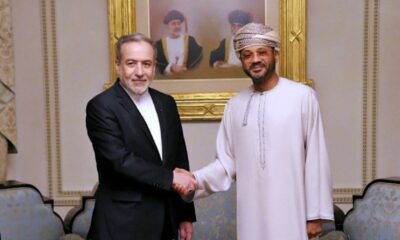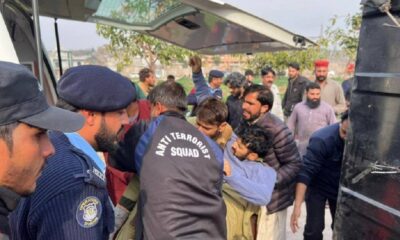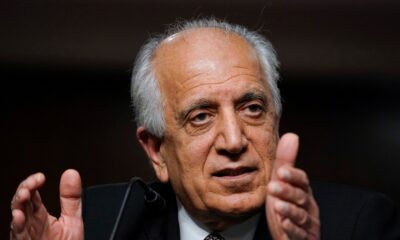Latest News
Muttaqi to hold talks with US and other foreign envoys in Doha
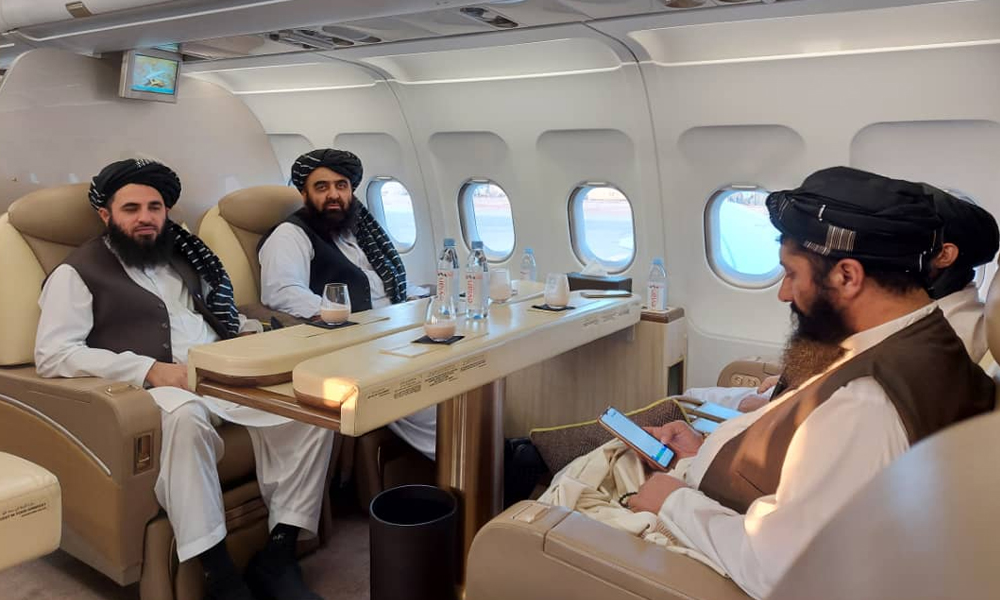
A senior Islamic Emirate of Afghanistan (IEA) delegation led by acting foreign minister Mawlawi Amir Khan Muttaqi left Kabul for Doha on Thursday ahead of planned talks with various foreign dignitaries including Washington’s special envoy for Afghanistan Thomas West.
Abdul Qahar Balkhi, the spokesman for the Ministry of Foreign Affairs, said the delegation left Kabul on Thursday afternoon and “consists of representatives from Ministries of Education, Health, Finance, Security, and Da Afghanistan Bank.”
This comes after Washington announced Wednesday that talks between the US and the IEA would resume next week in Doha.
Islamic Emirate of Afghanistan (IEA) officials said Thursday that the delegation would also hold talks with various foreign envoys.
Mohammad Naeem, a spokesman for the IEA, said in an interview with Ariana News the delegation will discuss various issues relating to Afghanistan – especially during talks with the US special envoy.
“Both sides will attempt to have good and positive relations; for these reasons we want to have meetings and negotiations with stakeholders,” Naeem said.
According to him, the Afghan delegation will also discuss the implementation of the Doha agreement signed in February last year and violations recorded.
“Both sides are involved in the Doha deal. When we call for the implementation of the Doha deal, it is necessary that both sides have a meeting to discuss the implementation, violation, problems and other related issues,” said Naeem.
Political analysts meanwhile said that the presence of representatives of other countries at this meeting was important for Afghanistan.
“Afghanistan’s fate is linked with all countries that are involved in Afghanistan, therefore, they intervened in Afghanistan’s internal affairs. These countries changed Afghanistan’s fate yesterday and today their decisions will change Afghanistan’s future,” said Wais Nasari, a political analyst.
Latest News
Afghanistan says Pakistan is shifting blame for its own security failures
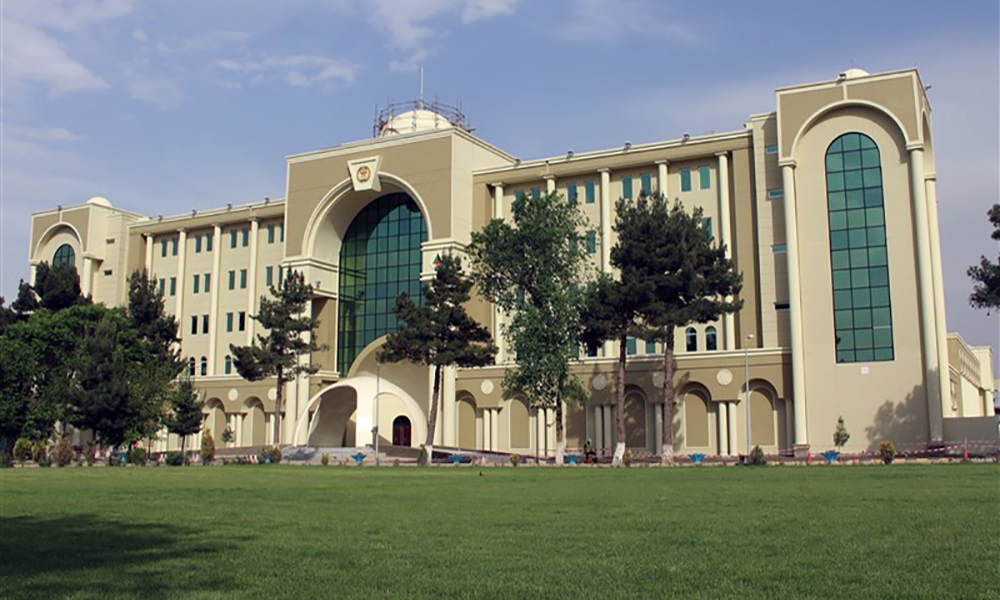
The Ministry of National Defense of the Islamic Emirate of Afghanistan has rejected recent accusations made by Pakistani officials following a deadly attack at a mosque in Islamabad, calling them “irresponsible” and “baseless.”
Pakistan’s Defense Minister Khawaja Mohammad Asif wrote on X that preliminary findings suggest the suicide bomber had been on the move to and from Afghanistan.
According to the Afghan Defense Ministry, Pakistan’s defense minister “immediately and irresponsibly” blamed Afghanistan for the attack without conducting proper investigations. Afghan authorities noted that this pattern has been repeated in the past, particularly regarding incidents in Balochistan and other security events inside Pakistan.
The ministry stated that linking such attacks to Afghanistan “has no logic or foundation,” adding that these statements cannot hide Pakistan’s internal security failures or help solve the underlying problems.
“If they were truly able to identify the perpetrators immediately after the incident, then why were they unable to prevent it beforehand?” the statement asked.
The Afghan government emphasized its commitment to Islamic values, stating it does not consider harm against innocent civilians permissible under any circumstances and does not support those involved in illegal acts.
The statement urged Pakistani security officials to take responsibility for their internal security shortcomings, review their policies, and adopt a more constructive and cooperative approach toward both their own citizens and neighboring countries.
Latest News
Islamic Emirate strongly condemns mosque bombing in Islamabad
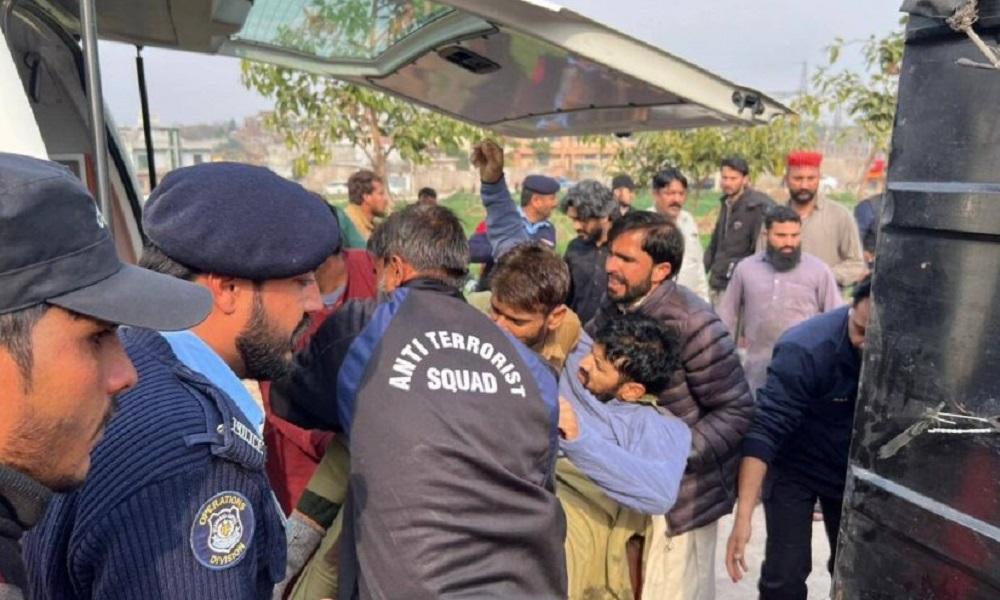
The Ministry of Foreign Affairs of the Islamic Emirate of Afghanistan has strongly condemned Friday’s suicide bombing at a Shi’ite mosque in Islamabad, the capital of Pakistan, which left 31 people dead and 179 others wounded.
Abdul Qahar Balkhi, spokesperson for the Ministry of Foreign Affairs, said in a statement that the Islamic Emirate considers such attacks—which violate the sanctity of religious rites and mosques and target worshippers and civilians—to be contrary to Islamic and human values.
The Islamic Emirate also expressed sympathy with the families of the victims and wished a speedy recovery to the wounded.
Latest News
Suicide bomber kills 31 in Shi’ite mosque in Pakistan’s capital
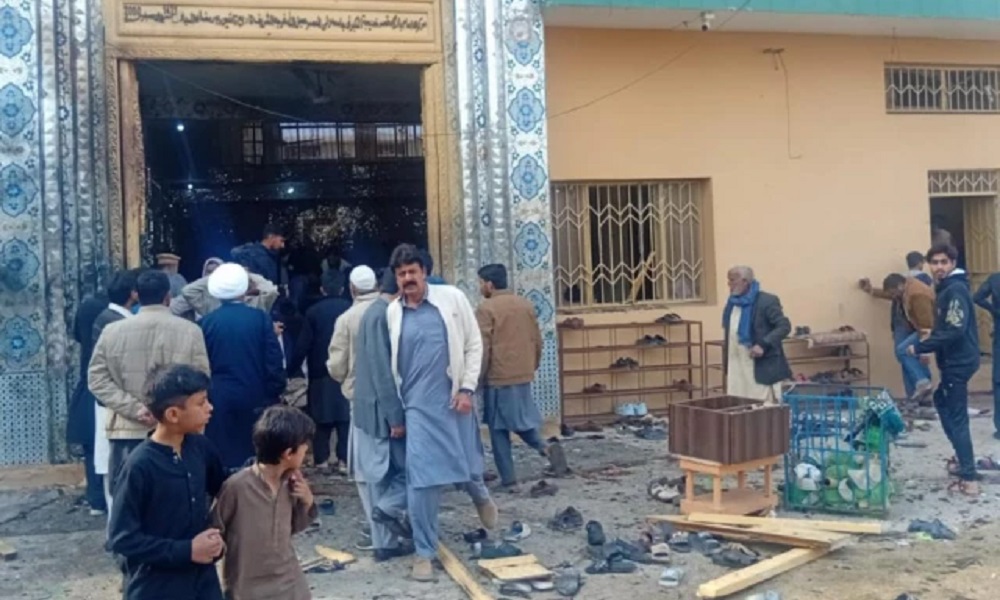
A suicide bomber killed at least 31 people and wounded nearly 170 others during Friday prayers at a Shi’ite Muslim mosque in Pakistan’s capital, Islamabad, Reuters reported, citing police and government officials.
Images from the site showed bloodied bodies lying on the carpeted mosque floor surrounded by shards of glass, debris and panicked worshippers.
Dozens more wounded were lying in the gardens of the Khadija Tul Kubra Imambargah, in a semi-urban area on the outskirts of Islamabad, as people called for help.
Bombings are rare in the heavily guarded capital, although Pakistan has been hit by a rising wave of militancy in the past few years.
“The death toll in the blast has risen. A total of 31 people have lost their lives. The number of wounded brought to hospitals has risen to 169,” Deputy Commissioner Islamabad Irfan Memon said in a statement.
Two police officials said the attacker was stopped at the gate of the mosque before detonating the bomb. They asked not to be identified as they were not authorized to speak to the media.
-

 Sport5 days ago
Sport5 days agoAFC Futsal Asian Cup 2026: Final eight confirmed
-

 Sport4 days ago
Sport4 days agoJapan trumps Afghanistan 6-0 in AFC Futsal Asian Cup quarter-final
-

 Sport5 days ago
Sport5 days agoAfghanistan in new kit for T20 World Cup warm-up against Scotland
-

 Sport3 days ago
Sport3 days agoHosts and heavyweights advance as AFC Futsal Asian Cup reaches semifinals
-

 International Sports5 days ago
International Sports5 days agoPakistan to boycott T20 World Cup group match against India
-

 Sport5 days ago
Sport5 days agoAfghanistan crush Scotland in ICC T20 World Cup warm-up
-

 Latest News2 days ago
Latest News2 days agoTerrorist threat in Afghanistan must be taken seriously, China tells UNSC
-

 Latest News3 days ago
Latest News3 days agoUzbekistan, Pakistan advance Trans-Afghan railway project




